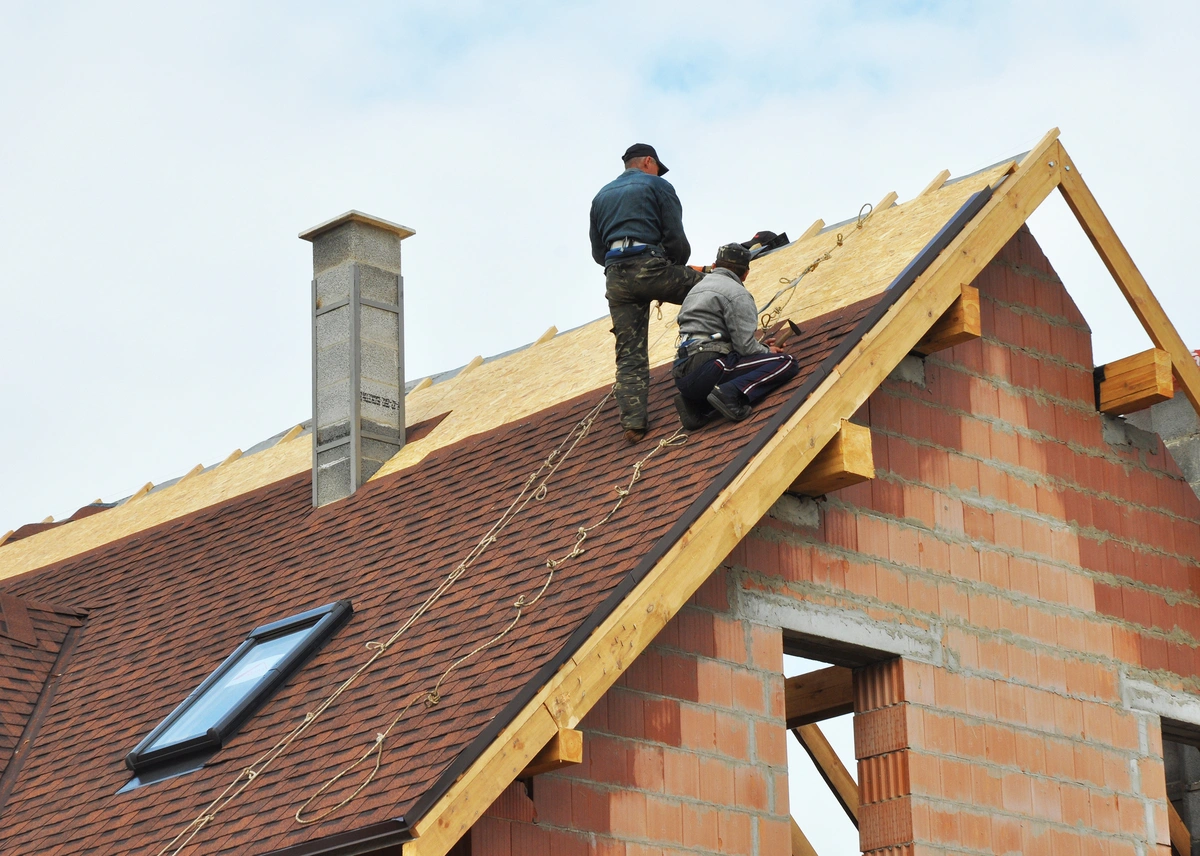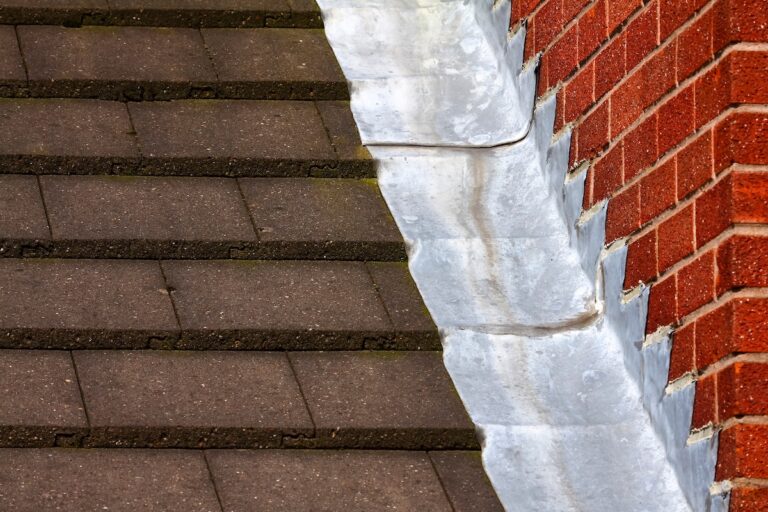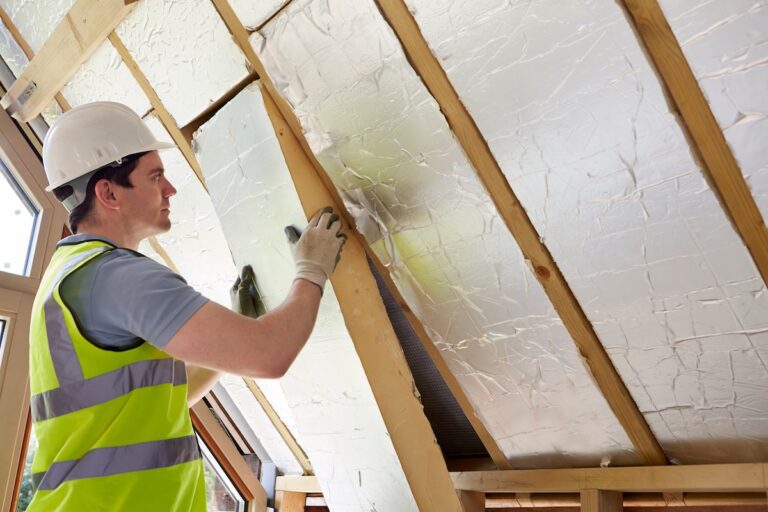If you’re wondering what the average cost to tear off and replace roof is, then it’s likely time for a new roof. The simple answer is that a full replacement costs around $11,500. However, depending on the specifics of your roofing project, the realistic average cost to tear off and replace roof can range anywhere between $6,700 and $80,000.
Why such a large range, you ask? As it turns out, there are a lot of things that factor into the final price. Labor costs, for instance, typically account for 40% to 60% of the total price tag, while logistical factors like tear-off and disposal fees for your old shingles can add another $1,000 to $3,000 to the bottom line.
There are also a lot of different roofing materials available in today’s market to choose from. While standard architectural asphalt shingles usually fall between $4 and $6 per square foot, opting for premium materials like standing seam metal, cedar shakes, or slate can easily double or triple your investment.
With so many variables at play, pinning down the average cost to tear off and replace roof requires looking at the big picture before diving into the specific dollar amounts. To help you plan with confidence, we have outlined the essential factors, financing options, and hiring tips that will shape your project in the key takeaways below.
Key Takeaways
- Primary Factors Affecting Your Quote The average cost to tear off and replace roof systems is determined by your home’s total square footage, the steepness of the pitch, and how easily the crew can access the work area. Read on to see how material choices and local permits also play a major role in the final price.
- Managing Your Investment Various funding methods, such as home improvement loans or equity lines, can help bridge the gap. Explore the different financial tools that make the average cost to tear off and replace roof materials easier to handle through flexible payment structures.
- Selecting a Reliable Professional Always verify that your contractor is fully licensed and insured before signing. Check out our checklist for vetting a team to ensure they provide clear written estimates and have a proven track record of high-quality craftsmanship.
- Starting Your Project: A new roof is a vital upgrade for your home’s long-term protection. Discover how professional inspections and tailored financing plans to help you get the high-quality installation you deserve.
The Average Cost to Tear Off and Replace Roof Systems: 9 Factors To Consider
When it comes to calculating the project budget and understanding the average cost to tear off and replace roof systems, there are several things that your roofing contractor will consider after their initial roof inspection.
The following are the standard variables that factor into roof replacement costs:
1) The Size of Your Roof
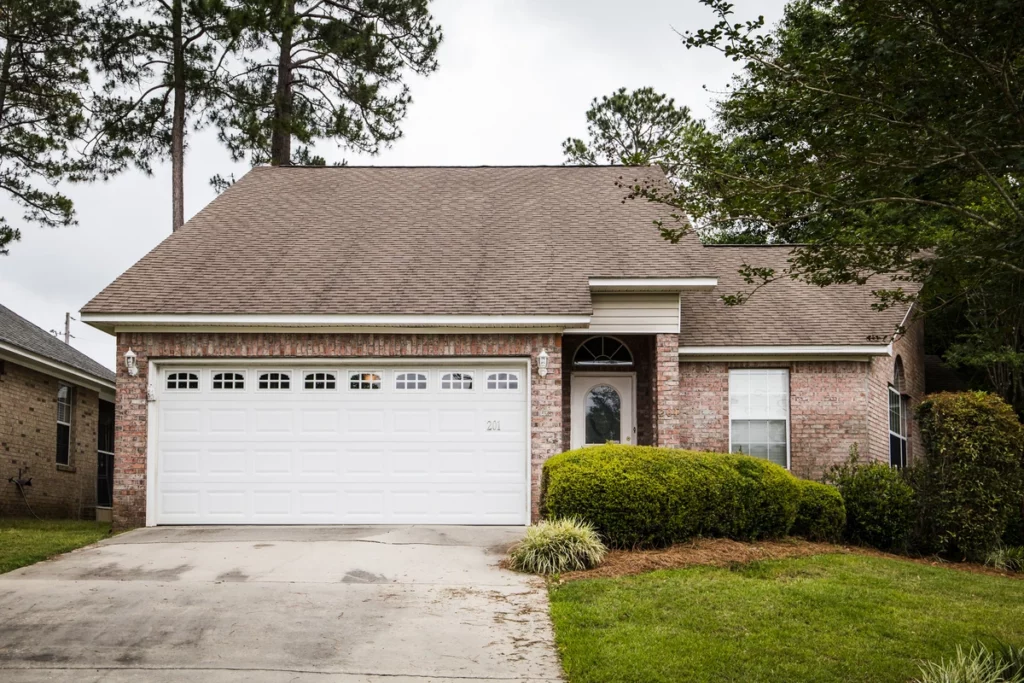
The size of your roof is the first and one of the most important factors that will determine the average cost to tear off and replace roof materials on your home. Roof sizes are measured in square feet, and the average roof replacement cost regarding size comes out to anywhere between $4.35 to $11 per square foot.
Generally speaking, the more square footage your roof has, the higher your cost will be — and this includes steep roof pitches, which add to that square footage.
Here’s a list of average costs per square foot (Sq F):
- 1,000 Sq F: $4,350 – $11,000
- 1,100 Sq F: $4,785 – $12,100
- 1,200 Sq F: $5,220 – $13,200
- 1,500 Sq F: $6,525 – $16,500
- 1,600 Sq F: $6,960 – $17,600
- 1,700 Sq F: $7,395 – $18,700
- 1,800 Sq F: $7,380 – $19,800
- 1,900 Sq F: $8,270 – $20,900
- 2,000 Sq F: $8,700 – $22,000
- 2,500 Sq F: $11,000 – $27,500
- 3,000 Sq F: $13,050 – $33,000
2) Your Roof Pitch
Roof pitch refers to the steepness of your roof. If your roof has a high pitch, it’ll require special safety equipment to ensure the roofing teams’ safety. This can end up costing anywhere between $1,000 and $3,000 extra in labor costs.
The general rule of thumb is that anything greater than a 6:12 pitch is automatically considered more complex and challenging to work on, which significantly raises the average cost to tear off and replace roof materials. Most roof pitches will fall between 3:12 and 6:12, with 12:12 (a 45-degree angle) being the maximum pitch.
3) The Accessibility of Your Roof
Roof accessibility refers to how easy or challenging it is for roofers to get on top of your roof, dispose of old materials, and move around.
A few examples of what can make or break a roof’s accessibility include:
- More stories, which require more time, labor, and safety measure
- The type of landscaping surrounding the home, which can make it more difficult to get up your roof and dispose of old materials
- The number of components your roof has
If your home is three stories high, has a lot of landscaping surrounding it, or is complicated to navigate, you can expect to pay more in labor costs, which increases the overall average cost to tear off and replace roof systems.
4) Roofing Materials
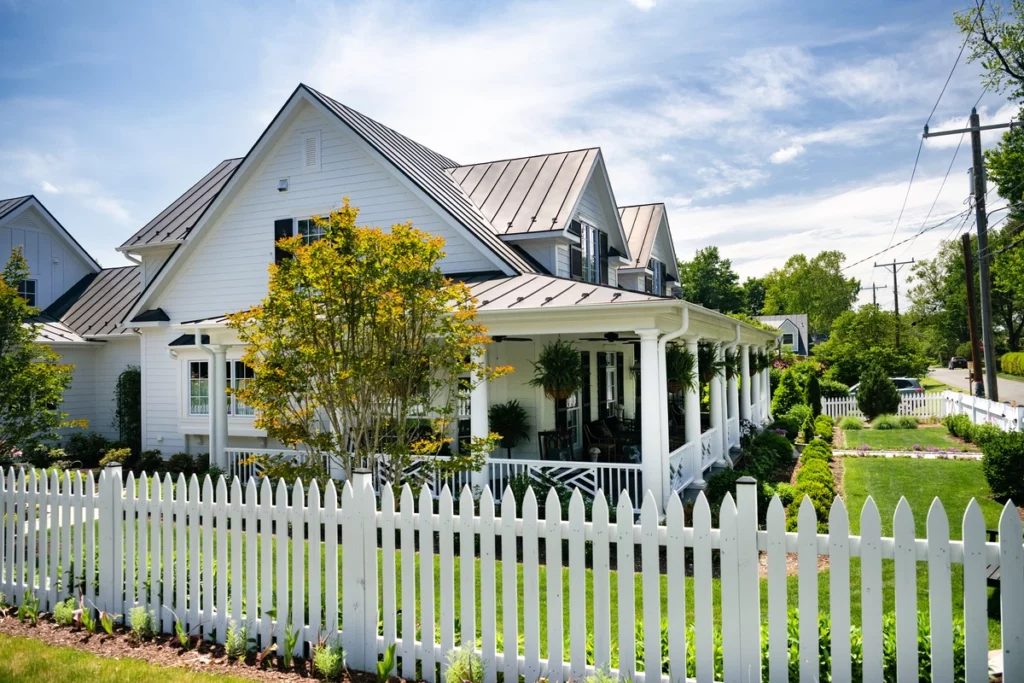
The type of roofing material you choose will significantly impact your roof costs. There are plenty of different roofing materials you can choose from, and your roofing contractor can guide you through them all to make the right choice.
To give you an idea of how each type of roofing material varies in cost, here’s an over of prices for an average-sized home of 2,000 square feet:
- Asphalt Shingles: $8,000 – $17,000
- Galvanized Steel: $14,000 – $30,000
- Cedar Shakes: $14,000 – $32,000
- Concrete Tile: $15,000 – $40,000
- Slate tiles: $19,000 – $52,000
- Clay tiles and shingles: $22,000 – $50,000
- Copper: $43,000 – $80,000
These price variances highlight why selecting your material early is crucial for accurate budgeting. While square footage provides a baseline, your choice between standard options like asphalt and premium finishes like copper will ultimately dictate the true average cost to tear off and replace roof systems for your specific home.
5) The Labor Required
Roofing is a very labor-intensive job, and it requires a lot of skill and training to ensure the old roof is removed without incident and the new one is installed properly. You can expect labor to make up at least 60% of your overall costs, averaging around $2 per square foot.
Keep in mind that the average cost to tear off and replace roof materials will increase or decrease depending on the other factors on this list — including labor rates and the disposal of old debris.
6) Your Location
Location accounts for a lot of cost-related variables, such as:
- Local labor costs
- Material prices and availability
- Building permits
- Weather conditions
- Scheduling availability
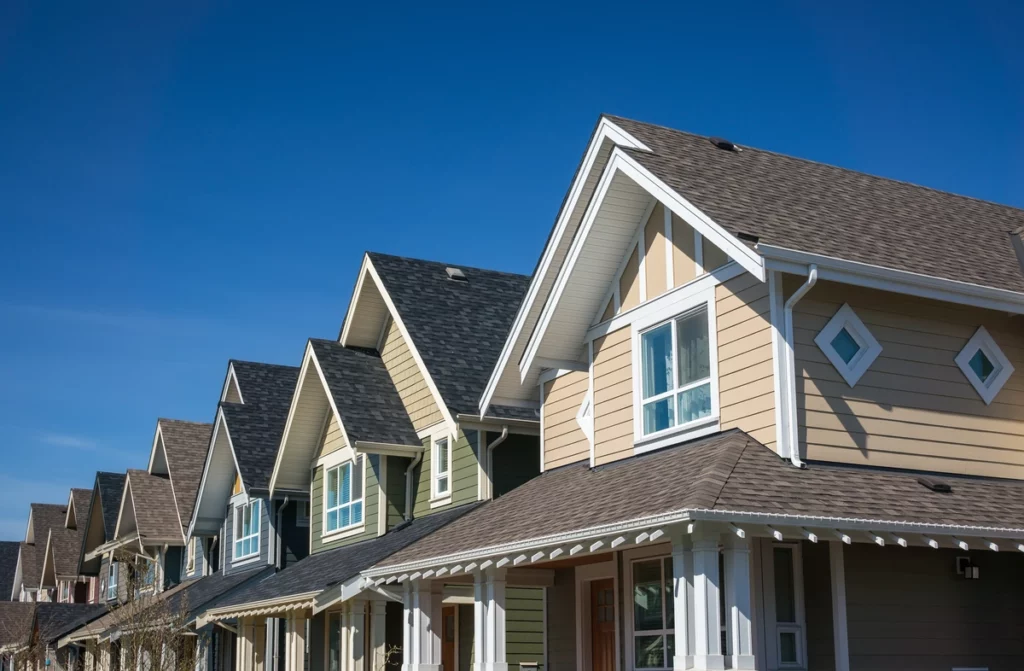
If you live in a metropolitan area, the average cost to tear off and replace roof systems is often higher due to the cost of living compared to more suburban and rural areas. Additionally, certain weather conditions call for certain materials and different localities have different rules regarding fees and permit requirements.
7) Building Permits
Replacing your roof requires a building permit, which your roofing contractor will apply for. Depending on where you live, you can expect to pay anywhere between $100 and $1,000 for a building permit — more if you live in a neighborhood governed by an HOA with corresponding renovation fees.
8) Inspections
Most roofing companies offer free inspections. However, these are basic inspections. Your roofer may be required to carry out a more in-depth inspection before starting the replacement project, which can cost between $120 and $400.
Certain municipalities also require that a building inspector comes during the project or after to ensure that everything is up to code for your own safety. This can end up costing another few hundred dollars, adding to the average cost to tear off and replace roof.
9) Removal of Your Existing Roof
The removal of your existing roof is also a labor-intensive task where the costs will depend on:
- Dumpster rentals
- Hauling the old materials away
- The proper disposal of old materials to prevent hazardous waste
- The size of your roof
Some roofing contractors bill for roof removal separately, but it’s very common for the removal to be factored into the total cost. Either way, you can expect to pay between $1,000 and $1,500 for the removal of your current roof.
Exploring Financing Options for Your New Roof
Covering the average cost to tear off and replace roof systems is a significant financial commitment, but it’s also a vital investment in your home’s safety, efficiency, and value. If a full upfront payment isn’t feasible, numerous financing options can help distribute the cost over time, making it more manageable.
Home Improvement Loans
One of the most straightforward ways to finance the average cost to tear off and replace roof systems is through a home improvement loan. These are unsecured personal loans offered by banks and credit unions, specifically for home renovation projects.
Home Equity Loans or HELOCs
If you have significant equity in your home, a home equity loan or a home equity line of credit (HELOC) could be a viable option to cover the average cost to tear off and replace roof systems. These loans use your home as collateral, often resulting in lower interest rates than unsecured loans. A home equity loan provides a lump sum with fixed monthly payments, while a HELOC works more like a credit card, allowing you to borrow as needed.
Manufacturer Financing
Some roofing manufacturers and contractors offer financing programs tailored to their products and the average cost to tear off and replace roof systems. These options often include promotional rates or deferred interest deals, making them an attractive choice if you’re considering a specific brand or contractor. Be sure to read the fine print and understand the terms thoroughly.
Government Programs
Depending on your location, there may be government-backed programs designed to assist with home improvements, including roofing projects. These programs can offer low-interest loans or grants, particularly for energy-efficient upgrades or repairs in designated areas.
Choosing the right financing option depends on your financial situation, the interest rates available, and the terms of the loan. It’s crucial to evaluate all possibilities carefully to ensure you select a plan that fits the average cost to tear off and replace roof projects into your budget without compromising your financial stability.
What to Look for in a Good Contractor
When embarking on a roofing project, selecting a reputable contractor is as crucial as deciding on the type of financing. A good contractor can ensure that your new roof is installed correctly and efficiently, safeguarding your investment for years to come. In this section, we will discuss key factors to consider when choosing a roofing contractor, helping you make an informed decision that aligns with your needs and expectations.
- Licensed and Insured: Ensure that the contractor has the necessary licenses to operate in your area and carries insurance to protect against potential damages or injuries during the project.
- Experience and Reputation: Look for contractors with a solid track record and positive reviews from previous clients. Experience often indicates a higher level of expertise and reliability.
- Written Estimates: A good contractor should provide a detailed written estimate of the project’s costs, timelines, and scope, enabling you to make informed comparisons with other bids.
- Quality Materials: A trustworthy roofing contractor should offer options for high-quality materials and discuss the benefits and warranties associated with each choice.
- Communication Skills: Effective communication is vital. The contractor should be responsive, courteous, and willing to answer any questions you have throughout the project.
- References and Past Work: Request references or see examples of past work to verify the contractor’s quality and reliability. This can provide insight into their craftsmanship and attention to detail.
Ultimately, hiring a professional who meets these standards protects you from low-quality work and hidden fees. A transparent contractor will walk you through their estimate, clearly explaining how labor, materials, and local requirements factor into the average cost to tear off and replace roof systems for a home like yours.
Ready For a New Roof?
The average cost to tear off and replace roof systems is something that many homeowners find discouraging. However, it’s worth the investment when your existing roof is nearing its end, or you plan to sell and want to boost your home’s value. What’s more, many reputable roofing companies offer special financing plans to make life easier for homeowners in need of new roofs.
When you’re ready for a new roof, call the experts at Johnson Restoration. Our customer support team will walk you through all of your options as well as the entire process. We also offer special financing so you don’t have to compromise on the roof you deserve!
FAQs
What is the average cost to tear off and replace roof?
The cost typically ranges from $5,000 to $15,000, depending on roof size, material, and labor costs in your area.
Does the cost vary by roofing material?
Yes, asphalt shingles are usually less expensive than metal, tile, or slate roofing.
Are there additional costs involved?
Yes, costs for permits, disposal fees, and repairing underlying damage can increase the total expense beyond the standard average cost to tear off and replace roof estimates.
How long does the project take?
Replacing a roof usually takes 1–3 days, depending on the roof size and complexity.
Can insurance cover the costs?
Insurance may cover replacement if damage is due to storms or other covered events. Always check your policy details.
